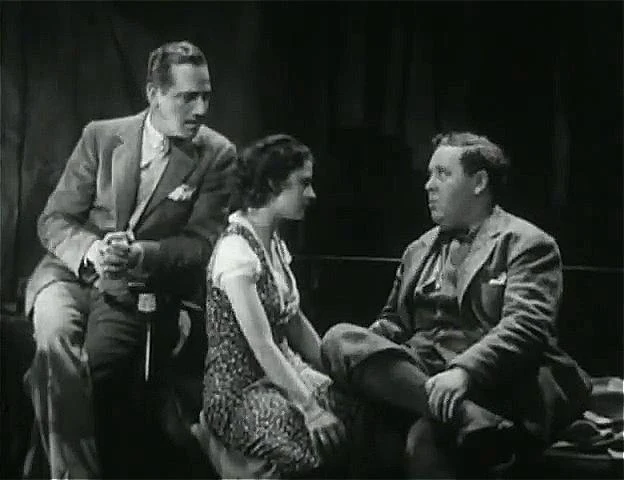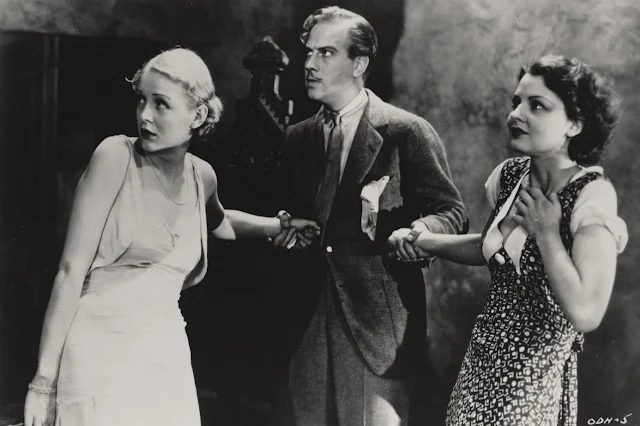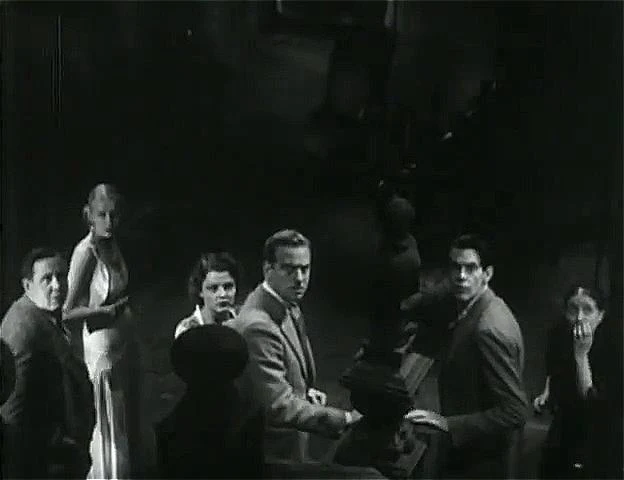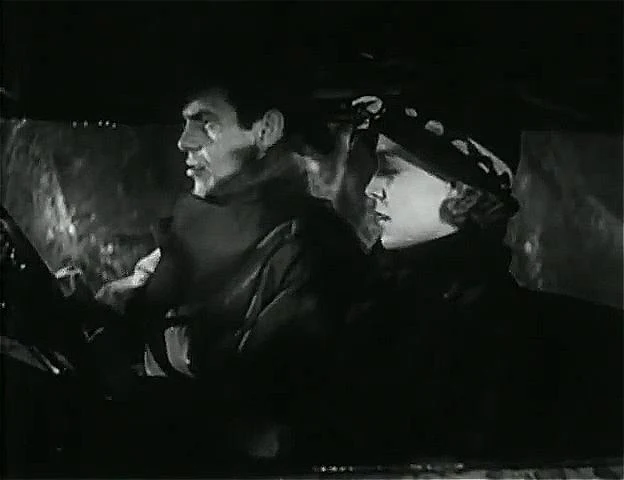A blog formerly known as Bookishness / By Charles Matthews
"Dazzled by so many and such marvelous inventions, the people of Macondo ... became indignant over the living images that the prosperous merchant Bruno Crespi projected in the theater with the lion-head ticket windows, for a character who had died and was buried in one film and for whose misfortune tears had been shed would reappear alive and transformed into an Arab in the next one. The audience, who had paid two cents apiece to share the difficulties of the actors, would not tolerate that outlandish fraud and they broke up the seats. The mayor, at the urging of Bruno Crespi, explained in a proclamation that the cinema was a machine of illusions that did not merit the emotional outbursts of the audience. With that discouraging explanation many ... decided not to return to the movies, considering that they already had too many troubles of their own to weep over the acted-out misfortunes of imaginary beings."--Gabriel García Márquez, One Hundred Years of Solitude
Search This Blog
Showing posts with label Ernest Thesiger. Show all posts
Showing posts with label Ernest Thesiger. Show all posts
Monday, October 28, 2019
The Old Dark House (James Whale, 1932)
The Old Dark House (James Whale, 1932)
Cast: Raymond Massey, Gloria Stuart, Melvyn Douglas, Boris Karloff, Ernest Thesinger, Eva Moore, Charles Laughton, Lilian Bond, Elspeth Dudgeon, Brember Wills. Screenplay: Benn W. Levy, based on a novel by J.B. Priestley. Cinematography: Arthur Edeson. Art direction: Charles D. Hall. Film editing: Clarence Kolster.
The title itself has an air of gleefully giving away what you're about to see. It's an old dark house and it's the only refuge from a storm that has Philip and Margaret Waverton (Raymond Massey and Gloria Stuart) and their friend Penderel (a slightly pudgy Melvyn Douglas) seeking shelter for the night. And when the disfigured butler Morgan (Boris Karloff, who else?) answers the door, you settle in for an evening of mostly tongue-in-cheek scary moments. The travelers are reluctantly invited in by Horace Femm (Ernest Thesiger) and his sister, Rebecca (Eva Moore), and just as reluctantly given dinner. Their meal of roast beef and potatoes -- the line "Have a potato" has never been funnier -- is interrupted by another pair of shelter seekers, Sir William Porterhouse (Charles Laughton) and his companion Gladys (Lilian Bond). They're an odd couple but not a spooky one: He's an uncouth industrialist who earned his knighthood and she's a chorus girl. But she's not his mistress, she explains to Penderel as the two of them start to hit it off together. She and Porterhouse just like one another's company, she says, and he likes to appear "gay" -- in the older meaning of the word, though you can be sure that director James Whale knew the current meaning, since he and Laughton and Thesinger were. There's also a centenarian in the attic and a madman in a locked room, and of course the lights go out and everyone finds themselves in some kind of peril. The Old Dark House was thought to be lost for a long time, but it was discovered and restored, for which we all should be glad.
Tuesday, June 26, 2018
The Horse's Mouth (Ronald Neame, 1958)
 |
| Alec Guinness in The Horse's Mouth |
Dee Coker: Kay Walsh
Sara Monday: Renee Houston
Nosey: Mike Morgan
Sir William Beeder: Robert Coote
A.W. Alabaster: Arthur Macrae
Lady Beeder: Veronica Turleigh
Abel: Michael Gough
Capt. Jones: Reginald Beckwith
Hickson: Ernest Thesiger
Lollie: Gillian Vaughan
Director: Ronald Neame
Screenplay: Alec Guinness
Based on a novel by Joyce Cary
Cinematography: Arthur Ibbetson
Art direction: William C. Andrews
Film editing: Anne V. Coates
Music: Kenneth V. Jones
The artist as mad eccentric is such a tired and familiar trope that artists should complain about it. But it remains true that the only way art can find new paths for itself is by going against the grain. It just remains to be seen how much anti-establishmentarianism one can get away with. Gulley Jimson gets away with a a lot -- theft, trespassing, and malicious destruction to start with -- in The Horse's Mouth, mainly because people think he's a genius (and his art a good investment). And in spite of his grubby egocentricity, there's something lovable about him -- at least the way Alec Guinness writes and plays him. The film doesn't really have much to say about the role of the artist in society or the venality of the art business beyond the obvious points, but director Ronald Neame keeps it buoyant with the help of Guinness and company, and with the especial help of Sergei Prokofiev, whose music for the film Lieutenant Kije (Aleksandr Faintsimmer, 1934), Kenneth V. Jones borrowed to great effect. Guinness was nominated for an Oscar for his adaptation of Joyce Cary's novel, to which he added the great visual gags of Abel's block of stone crashing through the floor into the apartment below and the Beeders and Alabaster being swallowed up when they unwittingly step out onto the rug placed over the resulting hole.
Thursday, October 13, 2016
Bride of Frankenstein (James Whale, 1935)
Funny, campy, occasionally scary, and featuring over-the-top performances by Ernest Thesiger, Dwight Frye, and Una O'Connor, Bride of Frankenstein may also be the saddest of all horror movies. Much has been made of a perceived subtext of the film, based in part on the knowledge that its director, James Whale, and Thesiger were openly gay, and it's possible to see the plight of the monster (Boris Karloff) as analogous to that of the gays of their time, subject to ridicule and repression from a hostile society. In this reading, Whale and Thesiger adopt camp attitudes as a way of thumbing their noses at a hostile, uncomprehending society. But that's an unnecessarily reductive interpretation. The monster is the ultimate outsider, an anomalous and inarticulate being, whatever his sexuality. He briefly finds companionship in the blind hermit (O.P. Heggie) who begins to teach him to speak -- including the word "friend" -- but their relationship is doomed by the intrusion of the world of ordinary humans, a world he can never be part of. In the end, when the mate (Elsa Lanchester) who has been created for him rejects him, his only recourse is self-destruction. "We belong dead!" the monster proclaims. To see Bride of Frankenstein as some sort of parable about gays in society would then be an endorsement of suicide as the only option. Subtexts often reside only in the mind of the beholder, and Whale was too much of an artist to turn his film into any kind of message, however latent in the fantastic tale he is telling. Better instead to relish Karloff's ability to give a subtle performance that shows through pounds of makeup. Or Lanchester's remarkable control and timing in bringing the bride to life, including the squawks and hisses that she claimed to have developed by watching swans in the park. Or John J. Mescall's classic black-and-white cinematography, Charles D. Hall's set designs, and Franz Waxman's score. Yes, Colin Clive and Valerie Hobson are a most improbable couple as the Frankensteins. Clive was far gone into alcoholism and looks it, but nobody could have delivered the line "She's alive! Alive!" more memorably.
Subscribe to:
Comments (Atom)































